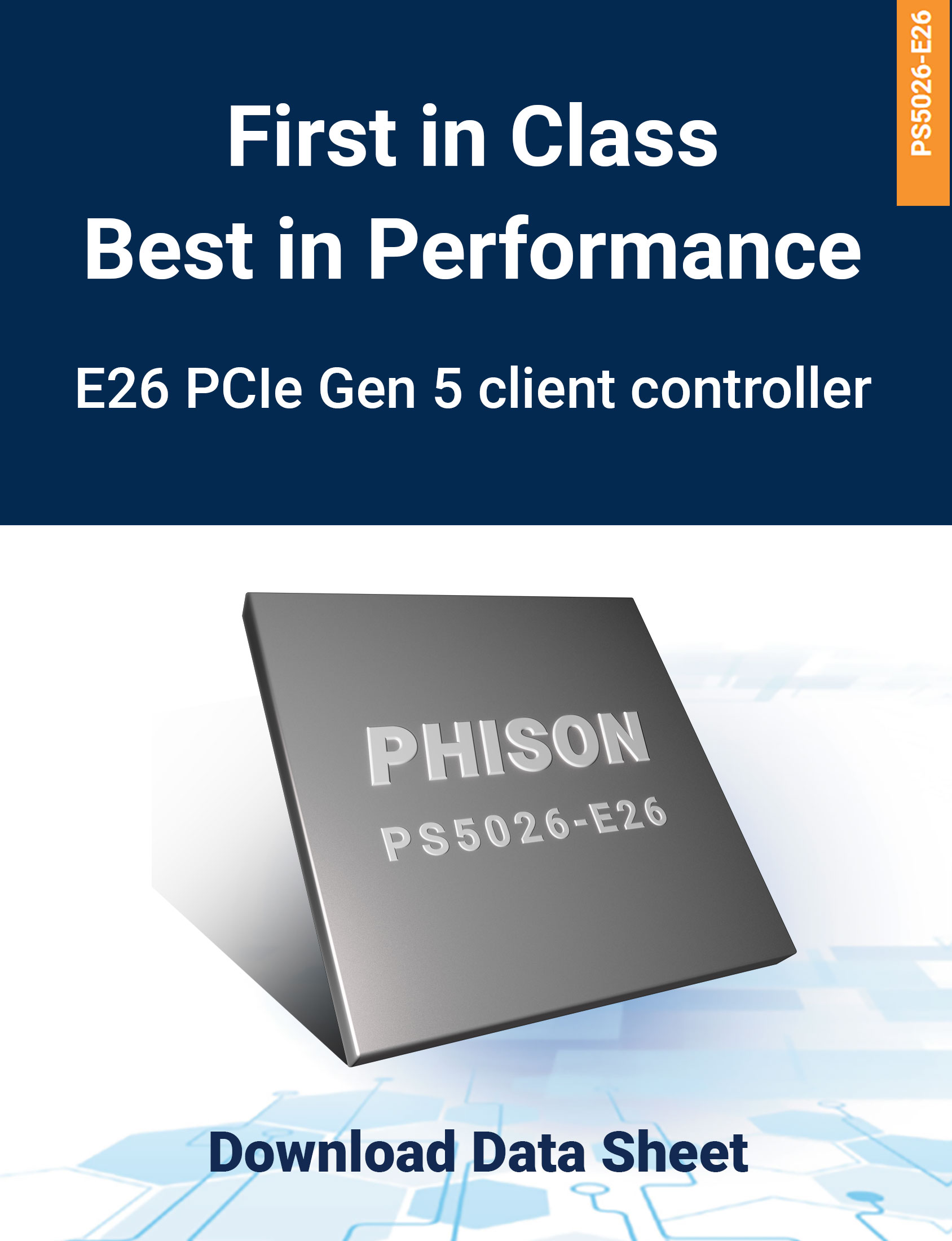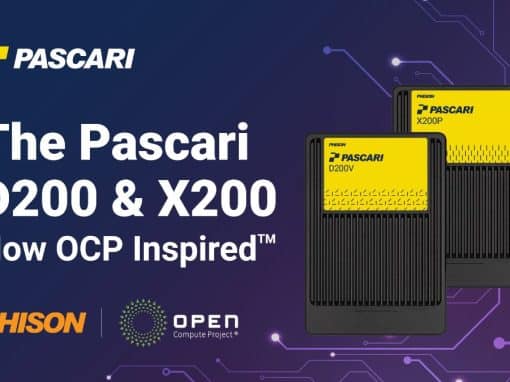As enterprises increasingly adopt digital products and solutions to enhance agility and efficiency, the need for customized SSDs continues to grow. Today, data storage vendors are able to deliver very specific capabilities by embedding SSDs into a vast array of devices—from the latest automobiles to industrial robots to advanced medical equipment.
While most organizations choose SSDs for their superior performance and low latency, there’s no “one size fits all” when it comes to data storage. The storage and performance needs of a healthcare device, for instance, could differ greatly from the needs of a self-driving automobile.
In this article, we’ll take a look at some of the different ways embedded SSDs are being customized to meet the unique requirements of specific industries or applications.
Different configurations for differing priorities
Automotive
As automobiles become ever more reliant on on-board computer systems to operate, the auto industry has developed a number of regulations and standards to ensure a minimum level of system performance.
For one thing, safety is of the utmost importance. That means any SSD that stores data in the vehicle must be extremely reliable and have high endurance. If an SSD fails or data is compromised while the vehicle is in operation, it could cost lives.
When SSDs designed for automotive applications are updated or changed, they should include change notices and the SSD device should be traceable back to the manufacturer with detailed production information. This will help ensure that automotive system developers are always aware of the specifications and expected performance of each SSD.
The automotive industry has a lot of certification requirements for vehicle parts and system components—again, to ensure a level of safety and performance. Common certification requirements include:
-
-
- IATF 16949:2016 – a process-oriented quality management system that provides for continual improvement, defect prevention and reduction of variation and waste in the supply chain.
- AEC-Q100 – a standard that certifies a device has passed specified stress tests and guarantees a certain level of quality/reliability.
- ISO 26262 – a standard for safety-related systems that include one or more electrical and/or electronic (E/E) systems installed in passenger cars.
-
Manufacturing/factory automation
In manufacturing, the factory floor is often considered a harsh or even hazardous environment. SSDs in factory machinery often need to be able to offer excellent performance despite extreme conditions—from heavy vibration to high or low temperatures to the presence of dust, noxious chemicals, gases or other particulates. Many SSD manufacturers gain MIL-STD 810G certification, which tests for adequate resistance to extremes in temperature, humidity, sand and dust, rain, vibration and shock.
SSDs used in manufacturing equipment must deliver consistent performance, often to support continuous, 24/7 operation. They also can be customized with smart tools for early diagnosis of potential malfunction or breakage. This is a valuable capability, as the manufacturer can address issues before they cause downtime, which leads to major costs in dollars and manpower and can seriously disrupt delivery deadlines.
Video surveillance
Digital video surveillance can benefit organizations in virtually every industry, by helping protect physical buildings and worksites. SSDs used in video surveillance systems need to be high capacity, with high input/output operations per second (IOPS), high drive writes per day (DWPD) and stable, sustained performance. These drives should be able to support extreme write-intensive workloads.
Because video surveillance is most beneficial before and after regular work hours when the organization workforce is on site, these SSDs need robust power loss protection (PLP). This protection helps ensure that data on the drive isn’t lost in the event of an unexpected power failure. It typically works through a capacitor component that temporarily powers the SSD circuit when external power is cut—so the SSD can complete the transfer of data from DRAM to the NAND flash memory.
SSDs in surveillance equipment located outside also need environmental protection from extreme temperatures, moisture, sand, and electrostatic discharges.
Kiosks, gaming and digital signage
SSDs used in devices such as retail or other self-help kiosks, slot machines and digital signage need to be extremely reliable and consistent. These devices are often left in areas far away from IT or other technical support staff and should offer long life, even up to five years. This will minimize the need for frequent maintenance and upgrades.
Another valuable SSD feature in these applications is write protection—again, because the devices or equipment are not monitored by IT staff around the clock. Write protection, also called read-only mode, keeps data from accidental or malicious deletion and modification.
Medical equipment
When used in medical devices and equipment, SSDs must provide high performance and reliability. Some medical equipment failures can result in patient death, injury or complications. That’s also why these SSDs need to have high durability and an extended lifespan, preferably three to five years. When human health is on the line, it’s also important to be able to proactively identify potential malfunction or drive failure—so many SSDs come with built-in monitoring capabilities to alert users or support staff to these issues.
Form factor can also be an issue for SSDs used in medical devices. Many portable devices and wearables, such as heart rate monitors and blood glucose monitors, require thin and small SSDs that consume very little power.
Aerospace
When it comes to aerospace organizations, data securitya and self-recovery are of paramount importance. SSDs for use in this industry often require high-level security certifications, including:
- Advanced Encryption Standard (AES) – a symmetric block cipher chosen by the U.S. government to protect classified information.
- TCG Opal – developed by the Trusted Computing Group (TCG), the Opal SSC (Security Subsystem Class) is a standard that helps “protect the confidentiality of stored user data against unauthorized access once it leaves the owner’s control (following a power cycle and subsequent deauthentication).” SSDs that meet this standard are often self-encrypting.
SSDs for aerospace also typically come with military-grade erase and destroy capabilities, which keeps unauthorized users from accessing sensitive data stored on the drive.
Environmental reliability is also a priority, so SSDs often need to be MIL-STD 810H-certified to resist extremes in temperature, humidity, sand and dust, rain, vibration, shock and radiation.
Data centers
SSDs used in enterprise data centers need to be reliable and deliver high performance and low latency, especially helpful for database caching and storing other data that applications or priority systems rely on. Server applications require high performance and consistency to handle complex workloads, so a high Quality of Service (QoS) is a plus. Many data center managers also look for a small footprint (1U) for use in quick bootup devices.
Low power consumption is important in data center SSDs because a data center can have hundreds, if not thousands of servers—and every little bit of power usage adds up quickly. Also valuable are low noise and low heat production.
High-density SSDs allow enterprises to store more data in less space, which helps increase energy efficiency from reduced need for power, cooling and so on.
Choose Phison for customized SSDs and flash storage
When selecting an SSD, it’s smart to choose a vendor that has the experience and expertise to deliver drives customized with the specific certifications, built-in features and capabilities you need for your unique applications.
As a leader in the NAND flash IP, Phison offers a high level of flexibility when customizing products for OEM clients and enterprises. This flexibility is due in part to the fact that Phison owns and develops all the critical IP for its NAND flash controllers in-house.
Phison is familiar with industry-specific standards and certifications, from military-grade environmental protection to stringent automotive safety regulations. The company is compliant with international standards as well, and tests products relentlessly to ensure the highest levels of quality and reliability.













